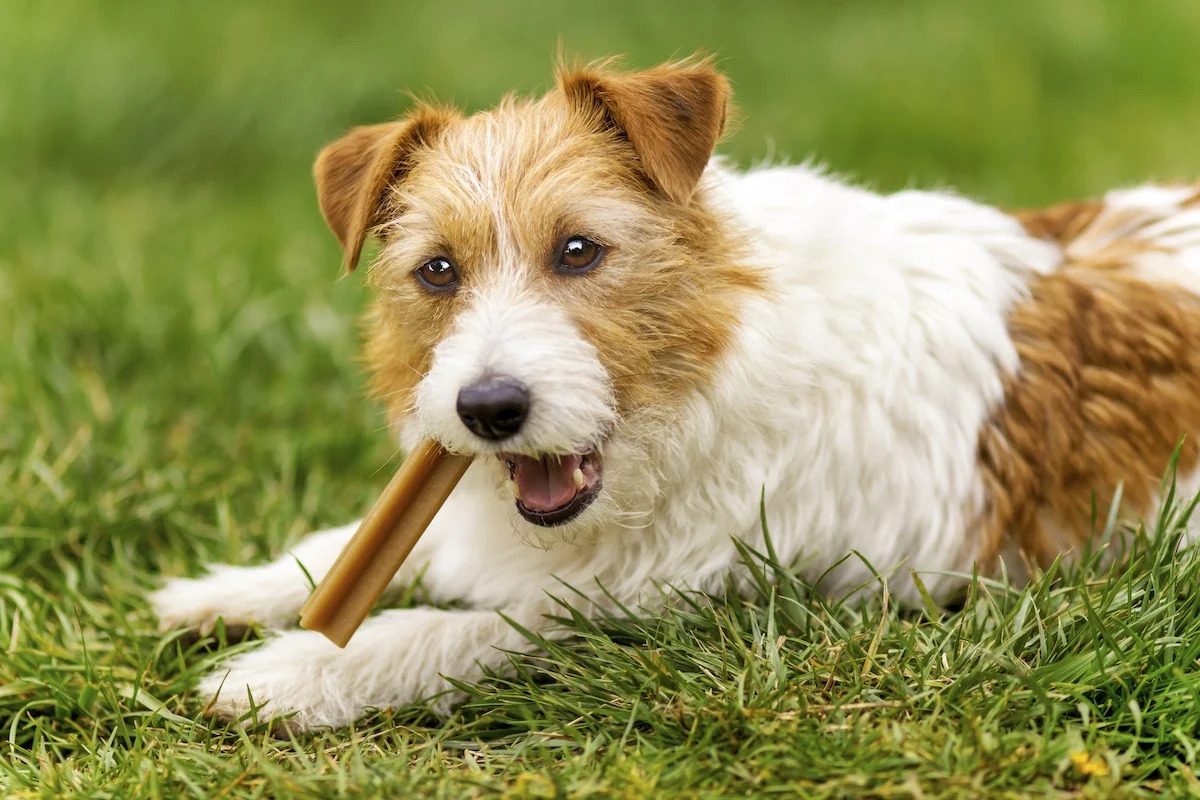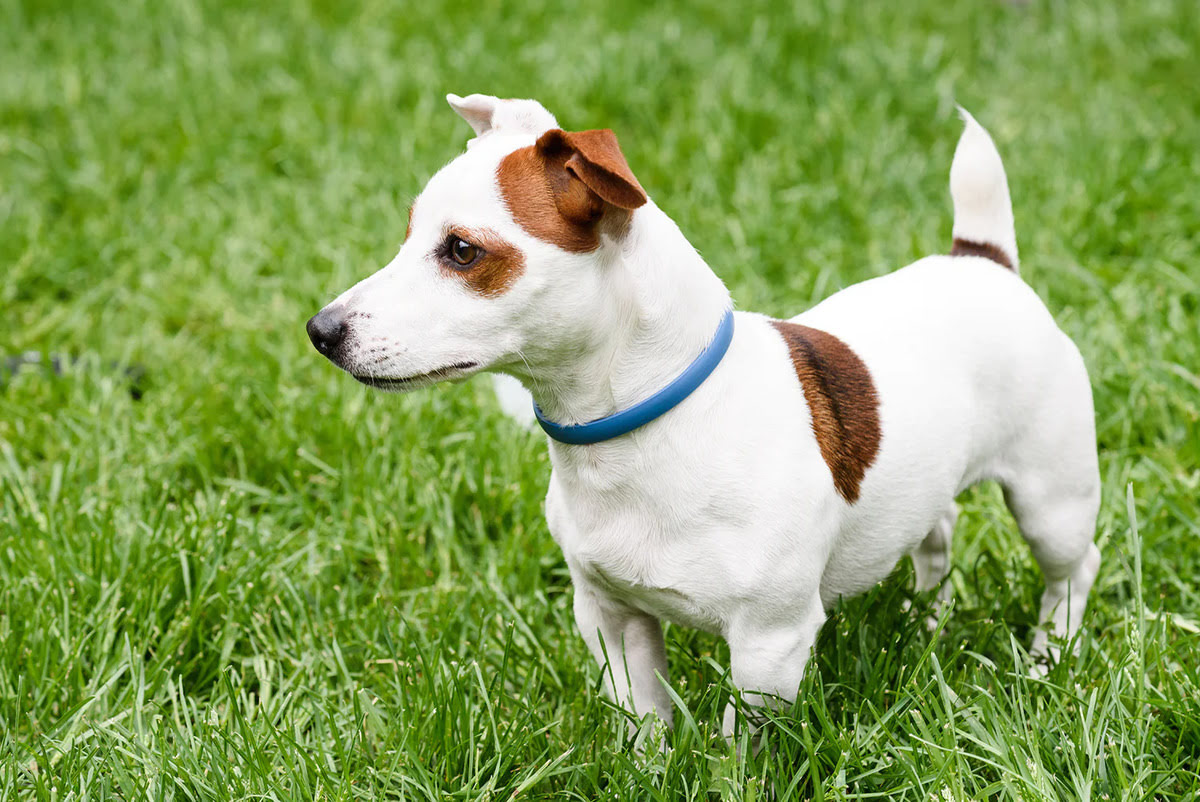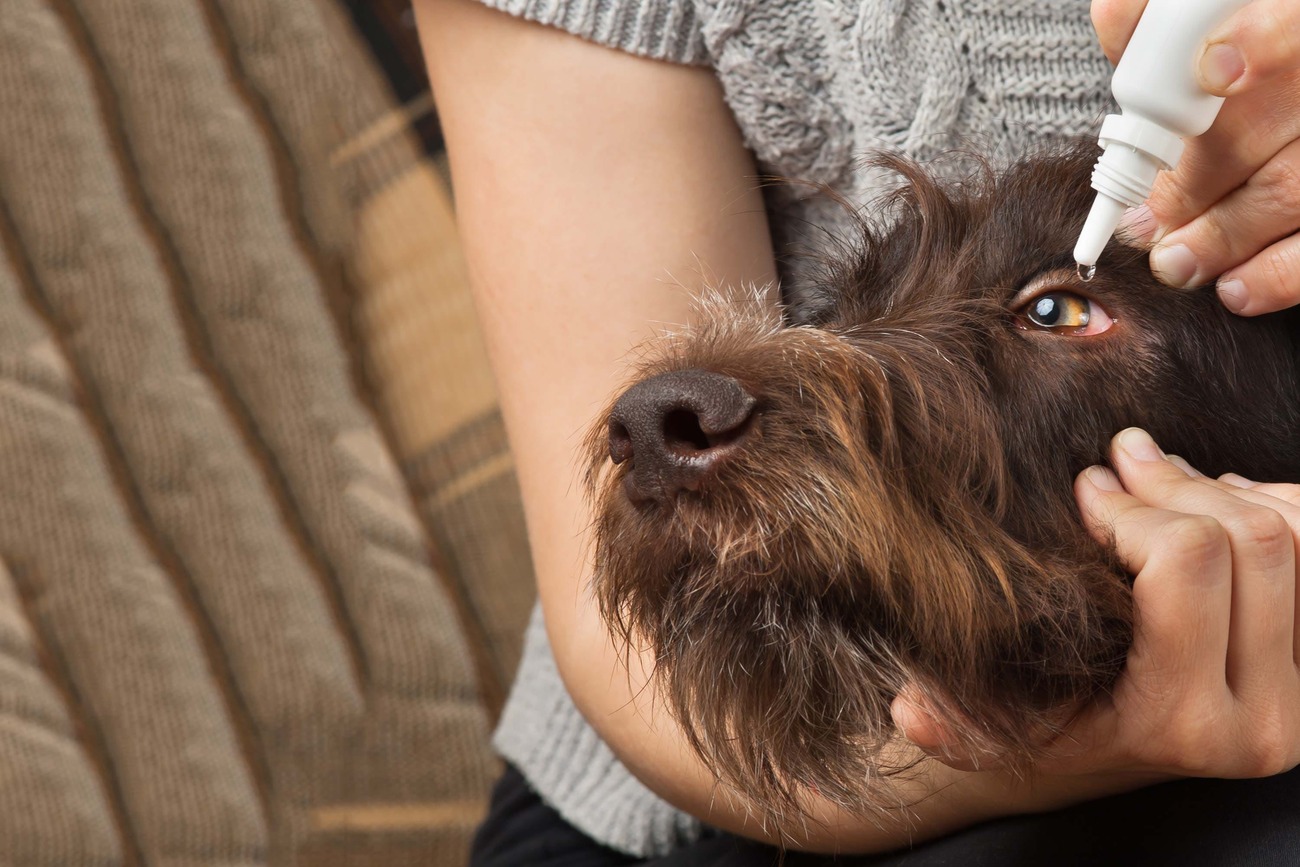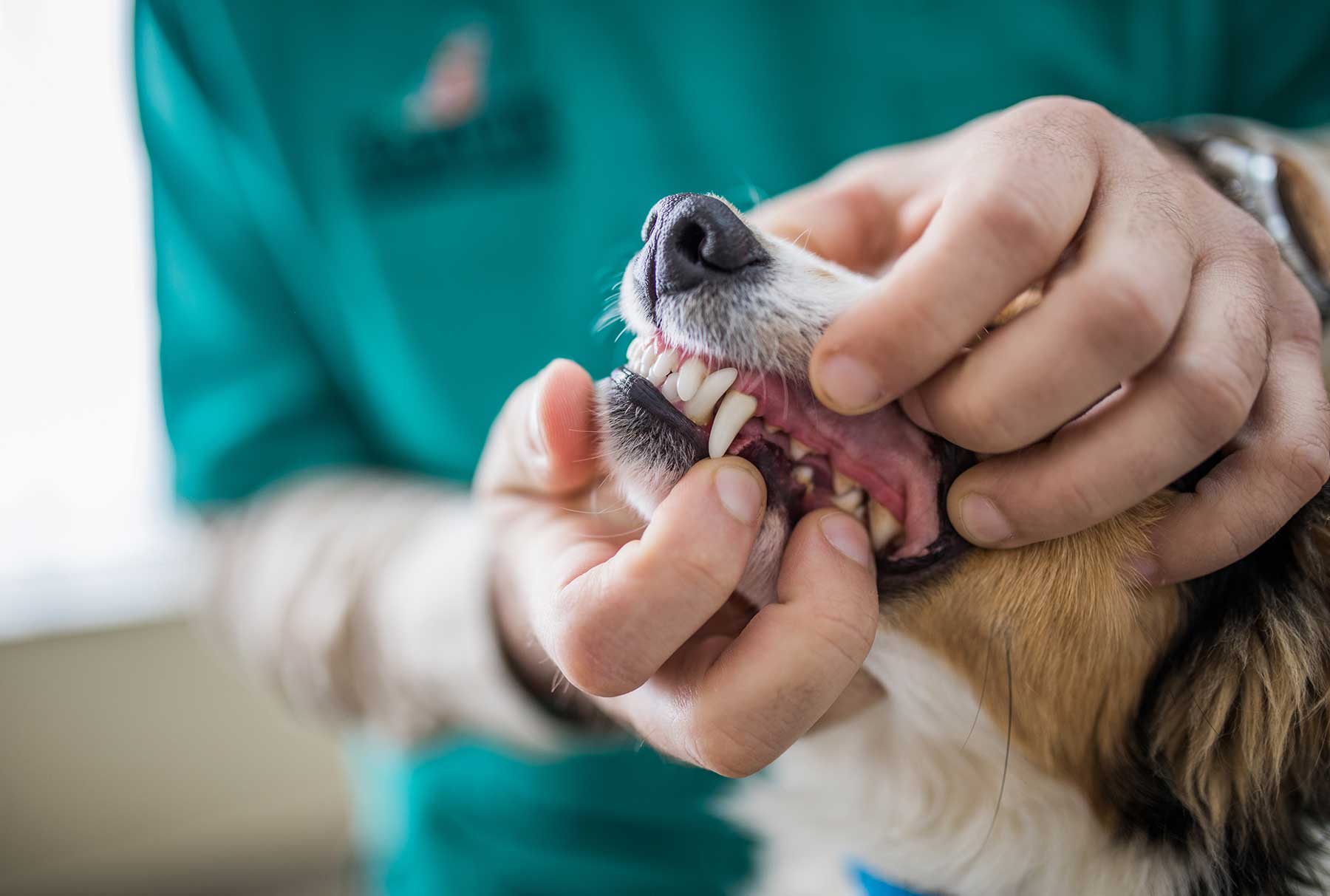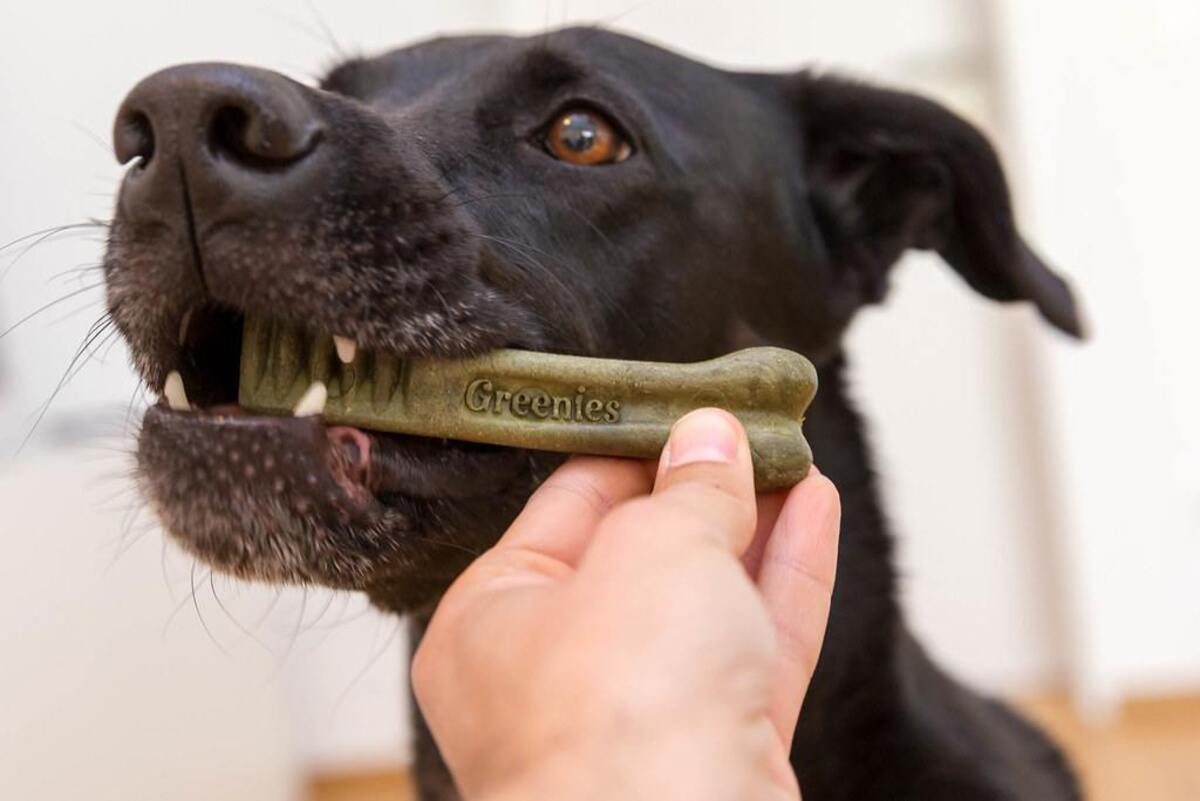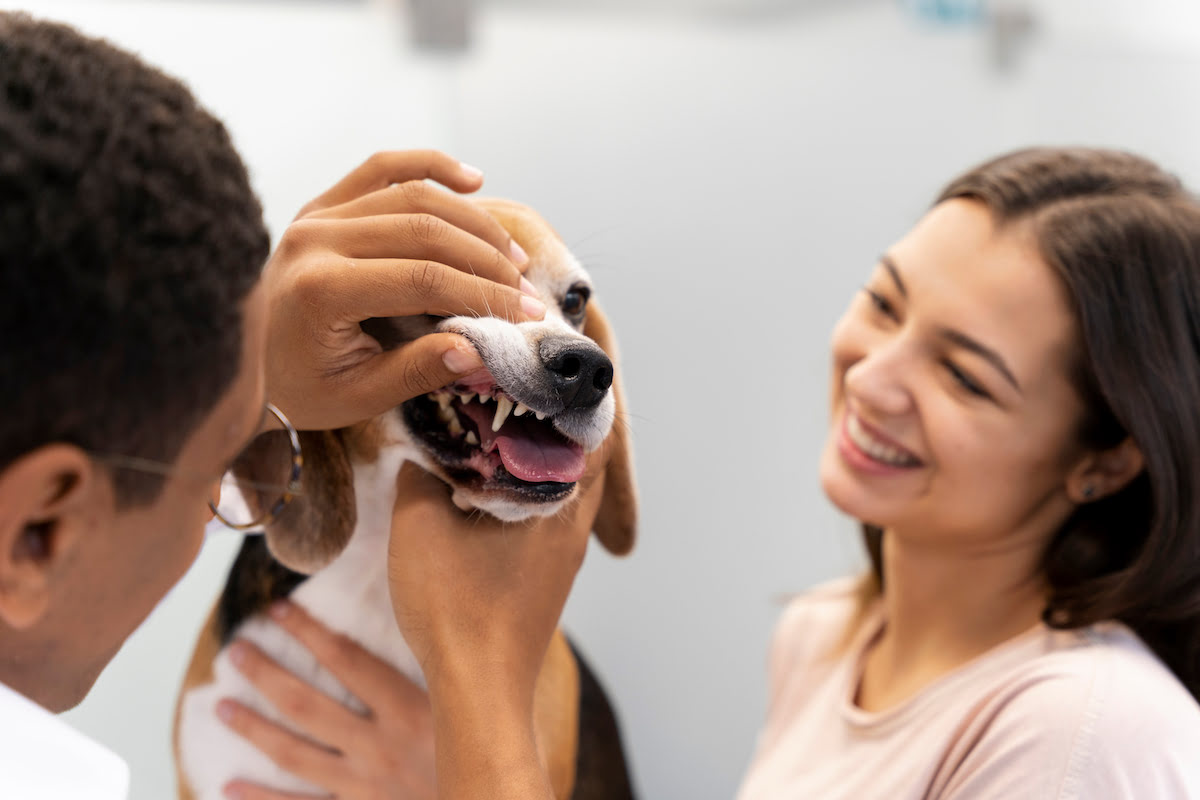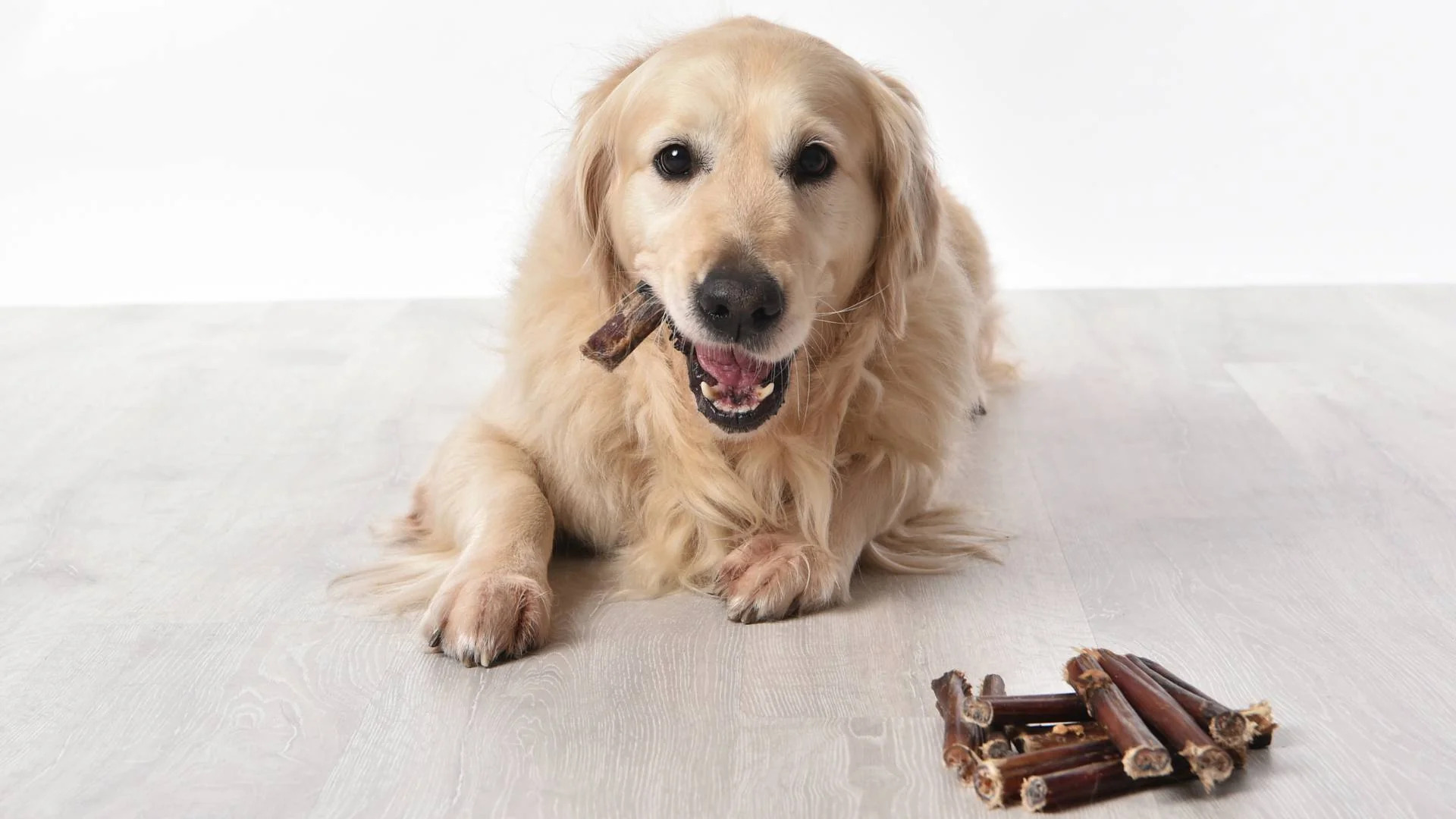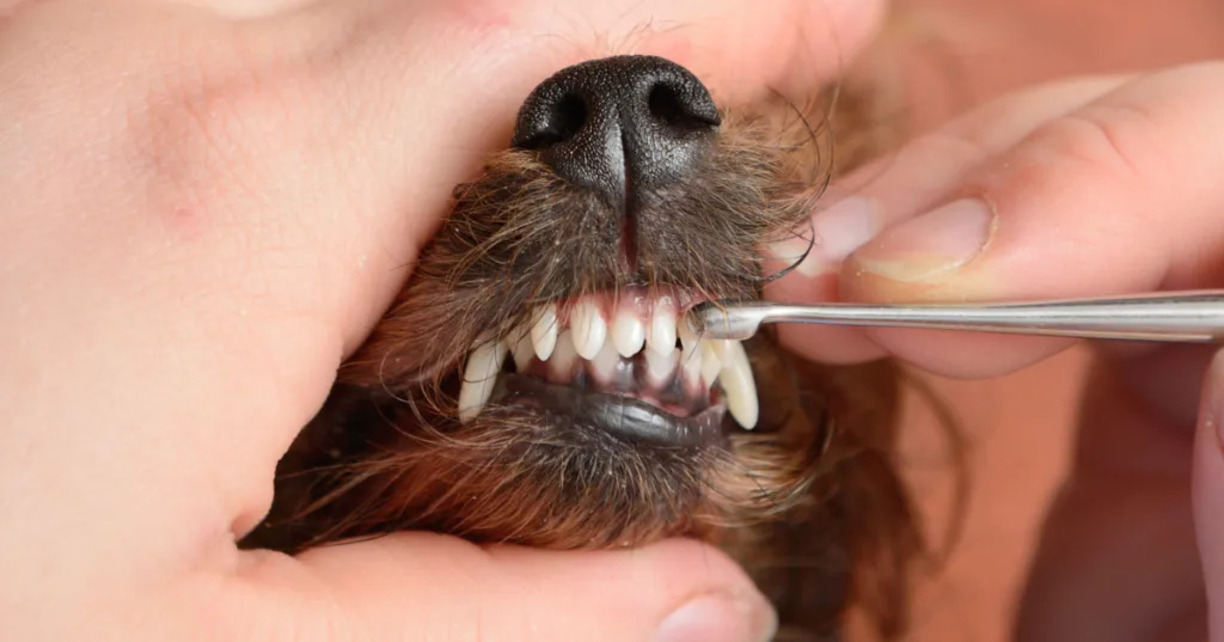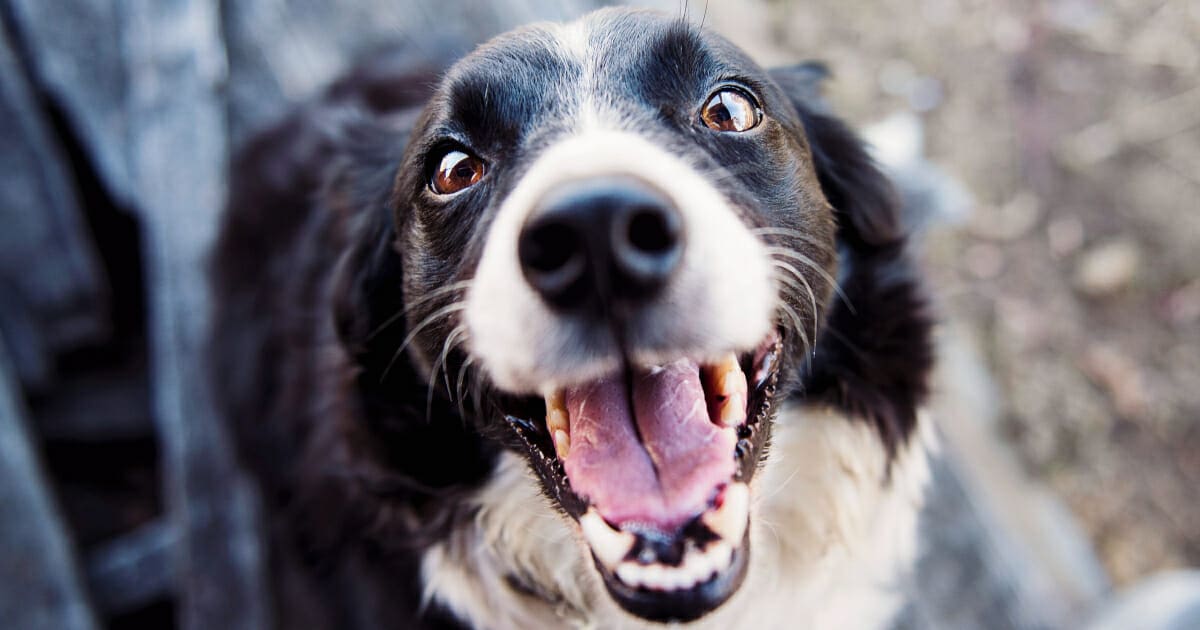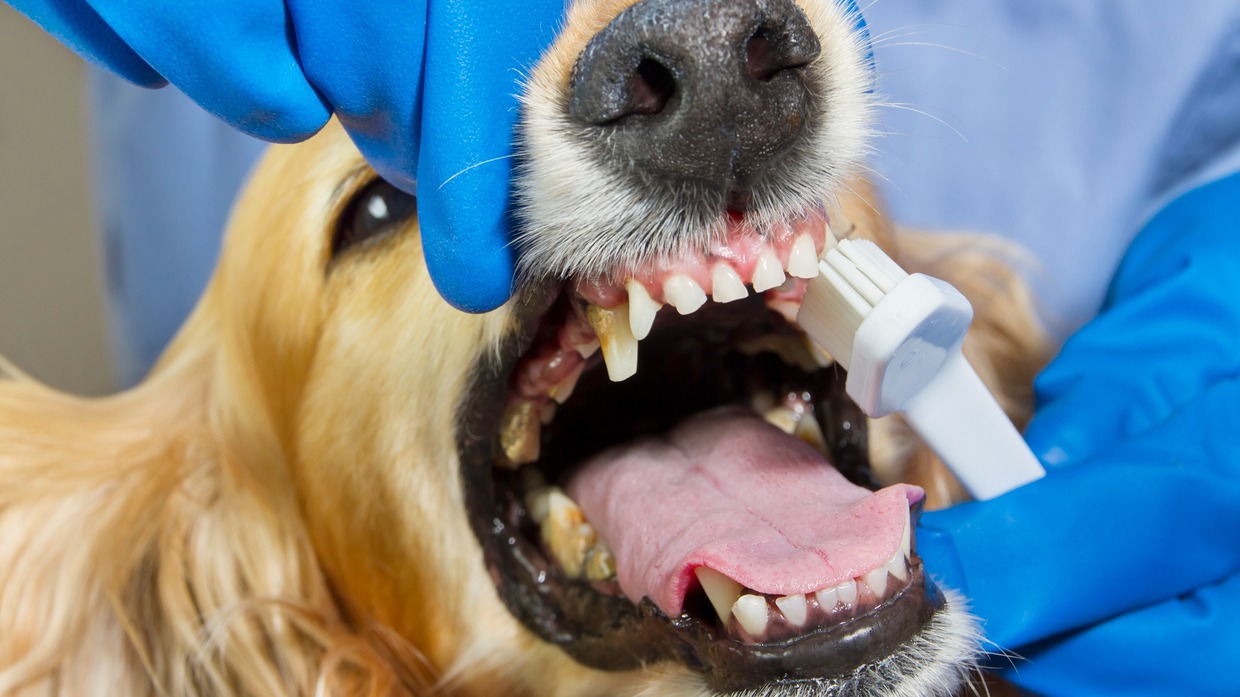Home>Health & Wellness>Common Health Issues>What Is Involved In Dental Work For Dogs
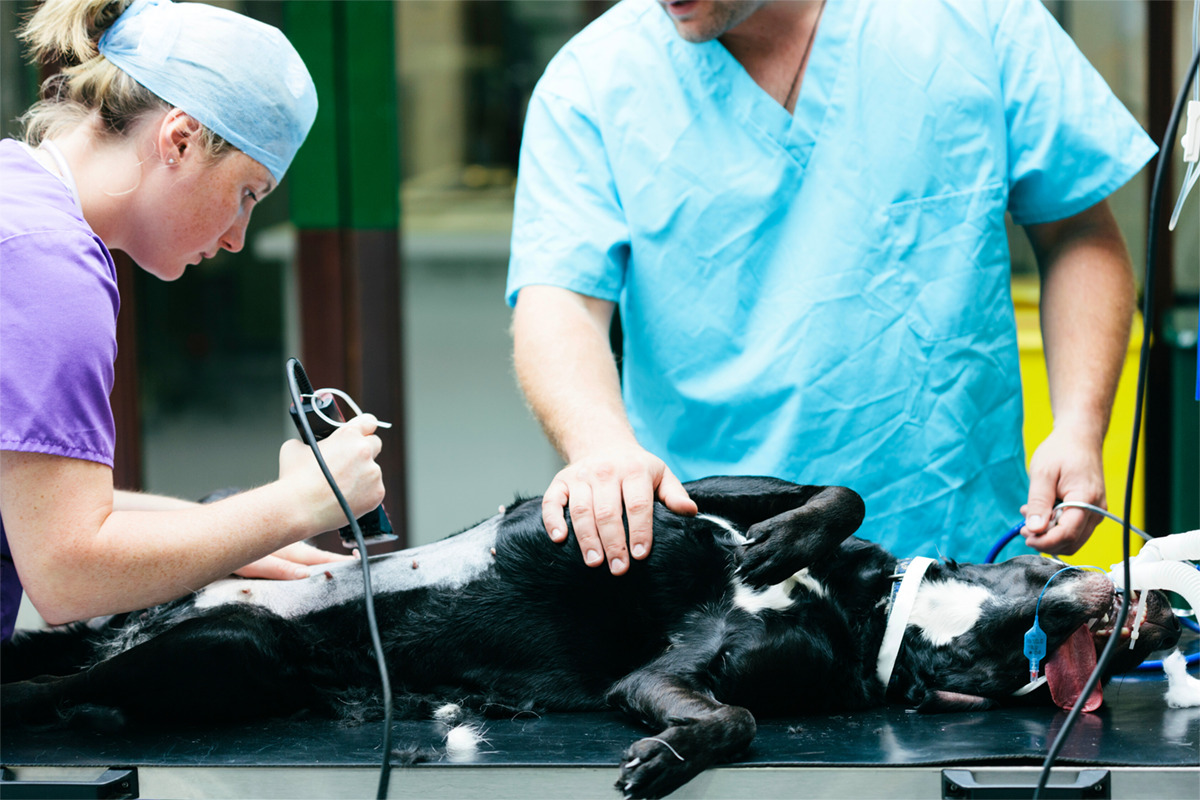

Common Health Issues
What Is Involved In Dental Work For Dogs
Modified: February 21, 2024
Learn about common health issues in dogs and the dental work involved in addressing them. Find out how to keep your dog's teeth healthy and prevent dental problems.
(Many of the links in this article redirect to a specific reviewed product. Your purchase of these products through affiliate links helps to generate commission for Pawsomeoldies.com, at no extra cost. Learn more)
Table of Contents
Introduction
Dental care is a crucial aspect of maintaining the overall health and well-being of our canine companions. Just like humans, dogs require regular dental attention to prevent oral health issues that can impact their quality of life. From cavities to gum disease, dental problems can cause discomfort and potentially lead to more serious health complications if left untreated. As responsible pet owners, it's essential to understand the significance of proper dental care for our furry friends and be proactive in addressing any oral health concerns they may have.
In this comprehensive guide, we will delve into the various aspects of dental work for dogs, shedding light on the importance of dental care, recognizing signs of dental problems, understanding the types of dental procedures available, preparing your dog for dental work, and providing essential aftercare following dental procedures. By gaining insight into these key areas, you will be better equipped to ensure the oral health and overall well-being of your beloved canine companion.
Let's embark on this enlightening journey to discover the intricacies of dental care for dogs and learn how we can play a proactive role in safeguarding their oral health.
Read more: What Is Dental Disease In Dogs?
Importance of Dental Care for Dogs
Proper dental care is paramount to the overall health and well-being of our canine companions. Just like humans, dogs are susceptible to a range of dental issues, including plaque buildup, tartar accumulation, gum disease, and tooth decay. Ignoring the oral health of our furry friends can lead to discomfort, pain, and potentially severe health complications. Therefore, understanding the importance of dental care for dogs is crucial for responsible pet ownership.
Maintaining good oral hygiene in dogs is not only about preventing bad breath and maintaining a sparkling smile; it is also about safeguarding their overall health. Dental problems in dogs can extend beyond the mouth, impacting vital organs such as the heart, liver, and kidneys. The accumulation of plaque and tartar can lead to periodontal disease, a painful condition that affects the gums and supporting structures of the teeth. If left untreated, periodontal disease can result in tooth loss and may even lead to bacterial infections that can spread to other parts of the body.
Regular dental care for dogs can help prevent these issues and contribute to their overall well-being. By implementing a dental care routine that includes brushing your dog's teeth, providing dental chews or toys, and scheduling professional dental cleanings, you can significantly reduce the risk of oral health problems. Additionally, maintaining good oral hygiene can enhance your dog's quality of life, ensuring that they can eat, play, and interact without the discomfort of dental issues.
Furthermore, addressing dental care for dogs is not only about treating existing problems but also about preventing future complications. Proactive dental care can save pet owners from costly treatments and spare their furry companions from unnecessary pain and suffering. By prioritizing dental care, pet owners can promote their dog's longevity and ensure that they lead happy, healthy lives.
In essence, the importance of dental care for dogs cannot be overstated. By recognizing the significance of oral health in our canine companions and taking proactive measures to maintain it, we can contribute to their overall well-being and happiness. Through regular dental care, we can help our furry friends enjoy a pain-free, healthy life, free from the burdens of dental issues and their potential repercussions on their general health.
Signs of Dental Problems in Dogs
Recognizing the signs of dental problems in dogs is crucial for early intervention and effective management of oral health issues. While our canine companions may not be able to verbally communicate their discomfort, they often exhibit subtle indicators that can alert us to potential dental problems. By being attentive to these signs, pet owners can promptly address any oral health issues, thereby preventing further complications and ensuring the well-being of their furry friends.
-
Bad Breath: Persistent bad breath, also known as halitosis, is a common indicator of dental problems in dogs. While occasional bad breath is normal, persistent foul odor can signify the presence of bacteria and plaque in the mouth, potentially indicating gum disease or tooth decay.
-
Changes in Eating Habits: Dogs experiencing dental issues may exhibit changes in their eating habits. This can include reluctance to eat, dropping food from the mouth, or favoring one side of the mouth while chewing. Discomfort while eating can be a sign of dental pain or discomfort.
-
Excessive Drooling: Unusual or excessive drooling in dogs can be a sign of dental problems. This may be accompanied by pawing at the mouth or rubbing the face against surfaces in an attempt to alleviate discomfort.
-
Visible Tartar and Discoloration: Inspecting your dog's teeth and gums can reveal the presence of tartar buildup, discoloration, or visible signs of decay. Discolored teeth, especially dark spots or areas of erosion, can indicate underlying dental issues that require attention.
-
Gum Inflammation and Bleeding: Inflamed or bleeding gums are indicative of periodontal disease, a common dental problem in dogs. Red, swollen, or bleeding gums should prompt a thorough dental examination to assess the extent of the issue and determine appropriate treatment.
-
Behavioral Changes: Dogs experiencing dental discomfort may exhibit changes in behavior, such as increased irritability, reluctance to play with toys, or avoiding contact with their mouth being touched. These behavioral changes can be a response to oral pain and should be taken seriously.
-
Loose or Missing Teeth: Loose teeth or missing teeth in adult dogs can be a result of advanced dental problems, such as severe periodontal disease or dental trauma. These issues require immediate attention from a veterinarian to prevent further complications.
By being vigilant for these signs of dental problems in dogs, pet owners can take proactive measures to address any oral health issues promptly. Regular dental check-ups and professional cleanings, combined with a consistent at-home dental care routine, can help maintain optimal oral health for our beloved canine companions.
Dental Work for Dogs: An Overview
Dental work for dogs encompasses a range of preventive and therapeutic measures aimed at maintaining optimal oral health and addressing existing dental issues in our canine companions. From routine dental cleanings to advanced dental procedures, the realm of dental work for dogs is multifaceted, catering to the diverse oral health needs of our furry friends.
One of the primary components of dental work for dogs is preventive care, which focuses on averting dental problems before they escalate. This includes regular dental check-ups, professional cleanings, and the implementation of at-home oral hygiene practices. Preventive dental care plays a pivotal role in minimizing the risk of dental issues such as plaque buildup, tartar accumulation, and gum disease, thereby promoting long-term oral health in dogs.
In cases where dental problems have already manifested, therapeutic dental work becomes essential. This may involve procedures such as tooth extractions, treatment of periodontal disease, and addressing dental trauma or abnormalities. Therapeutic dental work aims to alleviate discomfort, resolve existing oral health issues, and restore optimal oral function for dogs experiencing dental problems.
Furthermore, dental work for dogs often encompasses diagnostic procedures to assess the oral health status of our furry companions. This may involve dental X-rays to evaluate the condition of the teeth, roots, and surrounding structures, enabling veterinarians to identify hidden dental issues that may not be apparent during a visual examination.
In recent years, the field of veterinary dentistry has witnessed advancements in techniques and technologies, allowing for more effective and precise dental work for dogs. From minimally invasive dental surgeries to the use of specialized dental instruments and materials, these advancements have enhanced the quality of dental care available to our canine companions, ensuring that they receive the best possible treatment for their oral health needs.
In essence, dental work for dogs encompasses a comprehensive approach to maintaining and restoring oral health, encompassing preventive care, therapeutic interventions, diagnostic procedures, and the integration of cutting-edge advancements in veterinary dentistry. By prioritizing dental work for dogs, pet owners can contribute to the overall well-being and longevity of their beloved canine companions, ensuring that they enjoy a life free from the burdens of dental issues and their potential impact on general health.
Types of Dental Procedures for Dogs
Dental procedures for dogs encompass a diverse array of interventions aimed at addressing various oral health issues and maintaining optimal dental well-being in our furry companions. These procedures are designed to cater to the specific needs of dogs, ranging from preventive measures to therapeutic interventions, all aimed at promoting healthy teeth and gums. Understanding the types of dental procedures available for dogs is crucial for pet owners to make informed decisions regarding their canine companion's oral health care.
-
Dental Cleanings: Professional dental cleanings for dogs are akin to the routine cleanings humans receive from their dentists. These cleanings involve the removal of plaque and tartar buildup from the teeth, along with polishing to prevent future accumulation. Professional cleanings are essential for preventing periodontal disease and maintaining optimal oral hygiene in dogs.
-
Tooth Extractions: In cases where a dog's tooth is severely decayed, damaged, or causing discomfort, tooth extractions may be necessary. This procedure involves the careful removal of the affected tooth under anesthesia, alleviating pain and preventing further complications.
-
Periodontal Treatment: Periodontal disease, a common dental issue in dogs, requires specialized treatment to address inflammation and infection of the gums and supporting structures of the teeth. Periodontal treatment may involve deep cleaning, antibiotic therapy, and in advanced cases, surgical intervention to restore oral health.
-
Dental X-Rays: Diagnostic dental X-rays are invaluable in assessing the oral health status of dogs. These X-rays enable veterinarians to visualize the internal structures of the teeth and surrounding tissues, aiding in the detection of hidden dental issues such as abscesses, fractures, or impacted teeth.
-
Oral Surgery: Advanced dental procedures for dogs may involve oral surgery to address complex dental issues, including fractured teeth, oral tumors, or corrective jaw surgeries. Oral surgery in dogs requires specialized expertise and may be necessary to restore oral function and alleviate discomfort.
-
Orthodontic Procedures: While less common, orthodontic procedures may be recommended for dogs with severe dental misalignments or malocclusions. These procedures aim to correct dental abnormalities, improve oral function, and prevent potential complications associated with misaligned teeth.
Understanding the types of dental procedures available for dogs empowers pet owners to make informed decisions regarding their canine companion's oral health care. By working closely with veterinarians and prioritizing regular dental check-ups, pet owners can ensure that their furry friends receive the necessary dental care to maintain healthy teeth and gums, promoting their overall well-being and quality of life.
Read more: Who Performs Dental Prophylaxis In Dogs
Preparing Your Dog for Dental Work
Preparing your dog for dental work involves several essential steps to ensure a smooth and successful experience for both your canine companion and the veterinary team. By taking proactive measures and adequately preparing your dog for dental procedures, you can contribute to their comfort, safety, and overall well-being throughout the process.
Familiarizing Your Dog with Handling
Introducing your dog to gentle handling and oral examination can help alleviate anxiety and make the dental work experience less stressful. Begin by gently touching and lifting your dog's lips to expose their teeth and gradually progress to lightly brushing their teeth with a pet-safe toothbrush and toothpaste. This gradual familiarization can help your dog become more comfortable with the handling involved in dental procedures.
Veterinary Consultation and Pre-Anesthetic Evaluation
Prior to dental work, schedule a veterinary consultation to discuss the procedure and address any concerns. Your veterinarian will likely conduct a pre-anesthetic evaluation to assess your dog's overall health and determine the appropriate anesthesia protocol for the dental procedure. Following pre-anesthetic instructions, such as fasting before the procedure, is crucial to ensure your dog's safety and the effectiveness of the anesthesia.
Establishing a Comfortable Recovery Space
Creating a comfortable and quiet recovery space for your dog is essential for their post-procedural care. Prepare a cozy area with soft bedding where your dog can rest and recover after the dental work. Keep the environment calm and free from potential stressors to facilitate a smooth recovery process.
Read more: What Works To Calm Travel Anxiety In Dogs
Post-Procedure Care and Monitoring
Following dental work, your dog may require special post-procedural care and monitoring. This may include administering prescribed medications, providing soft or liquid food to accommodate any oral discomfort, and monitoring for any signs of complications. Adhering to post-procedure care instructions from your veterinarian is crucial for ensuring your dog's comfort and promoting a swift recovery.
By diligently preparing your dog for dental work and collaborating closely with your veterinary team, you can help ensure a positive and successful experience for your canine companion. Prioritizing their comfort, safety, and well-being throughout the dental work process is paramount, ultimately contributing to their overall oral health and quality of life.
Aftercare for Dental Procedures
After a dental procedure, providing appropriate aftercare for your dog is essential to promote healing, alleviate discomfort, and ensure a smooth recovery process. The post-procedural period is crucial for your dog's oral health and overall well-being, and diligent aftercare can significantly contribute to their comfort and long-term oral health.
Pain Management and Medication
Following dental procedures, your veterinarian may prescribe pain management medications to alleviate any discomfort or soreness. It is imperative to administer these medications as directed, ensuring that your dog remains comfortable during the recovery period. Additionally, any prescribed antibiotics should be administered according to the veterinarian's instructions to prevent infection and promote healing.
Soft Diet and Hydration
In the immediate aftermath of dental work, your dog may experience oral sensitivity, making it challenging to chew hard or dry food. Providing a soft diet, such as canned or moistened food, can help accommodate any oral discomfort and facilitate easier eating. Ensuring that your dog remains adequately hydrated is also crucial for their recovery, as proper hydration supports overall healing and well-being.
Oral Hygiene Maintenance
Maintaining good oral hygiene following dental procedures is paramount to prevent complications and promote long-term oral health. Depending on the nature of the procedure, your veterinarian may recommend specific oral hygiene practices, such as gentle tooth brushing or the use of oral rinses. Adhering to these recommendations can aid in preventing plaque buildup, supporting healing, and maintaining optimal oral hygiene for your dog.
Monitoring for Complications
During the post-procedural period, it is essential to monitor your dog for any signs of complications or unusual behavior. This includes observing for excessive drooling, reluctance to eat, swelling, bleeding, or any indications of pain. Promptly reporting any concerning symptoms to your veterinarian can facilitate timely intervention and ensure that any issues are addressed effectively.
Follow-Up Care and Veterinary Monitoring
Scheduling a follow-up appointment with your veterinarian is crucial to assess your dog's healing progress and address any post-procedural concerns. During this appointment, your veterinarian can evaluate the surgical site, provide additional oral care guidance, and address any lingering discomfort or issues. Veterinary monitoring and follow-up care play a pivotal role in ensuring that your dog's recovery is progressing as expected and that their oral health is being effectively managed.
By diligently adhering to the aftercare guidelines provided by your veterinarian and maintaining open communication with the veterinary team, you can contribute to your dog's comfort, well-being, and long-term oral health following dental procedures. Prioritizing aftercare measures and providing attentive support to your canine companion during the recovery period can ultimately lead to a successful and positive outcome, ensuring that they enjoy optimal oral health and a pain-free, healthy smile.
Conclusion
In conclusion, prioritizing dental care for dogs is paramount for ensuring their overall health, well-being, and quality of life. By recognizing the significance of oral health in our canine companions and taking proactive measures to maintain it, pet owners can contribute to their furry friends' longevity and happiness. From the importance of dental care to recognizing signs of dental problems, understanding the various types of dental procedures, and preparing for and providing aftercare following dental work, this comprehensive guide has shed light on the multifaceted aspects of dental care for dogs.
By embracing preventive dental care, including regular dental check-ups, professional cleanings, and at-home oral hygiene practices, pet owners can significantly reduce the risk of dental issues in their dogs. Moreover, being attentive to the signs of dental problems, such as bad breath, changes in eating habits, and visible tartar, enables early intervention and effective management of oral health issues.
Understanding the diverse types of dental procedures available for dogs empowers pet owners to make informed decisions regarding their canine companion's oral health care. From dental cleanings and tooth extractions to periodontal treatment and oral surgery, these procedures cater to the specific oral health needs of dogs, promoting healthy teeth and gums.
Preparing dogs for dental work and providing diligent aftercare are essential components of ensuring a positive and successful experience for our furry companions. By familiarizing dogs with handling, scheduling veterinary consultations, establishing comfortable recovery spaces, and adhering to post-procedural care instructions, pet owners can contribute to their dogs' comfort, safety, and overall well-being throughout the dental work process.
In essence, by prioritizing dental care for dogs and embracing a proactive approach to oral health, pet owners can play a pivotal role in safeguarding their canine companions' oral well-being. Through regular dental care, early intervention, and attentive aftercare, dogs can enjoy a pain-free, healthy life, free from the burdens of dental issues and their potential impact on general health. By embracing the principles outlined in this guide, pet owners can ensure that their beloved canine companions maintain optimal oral health, enabling them to lead happy, healthy lives for years to come.
